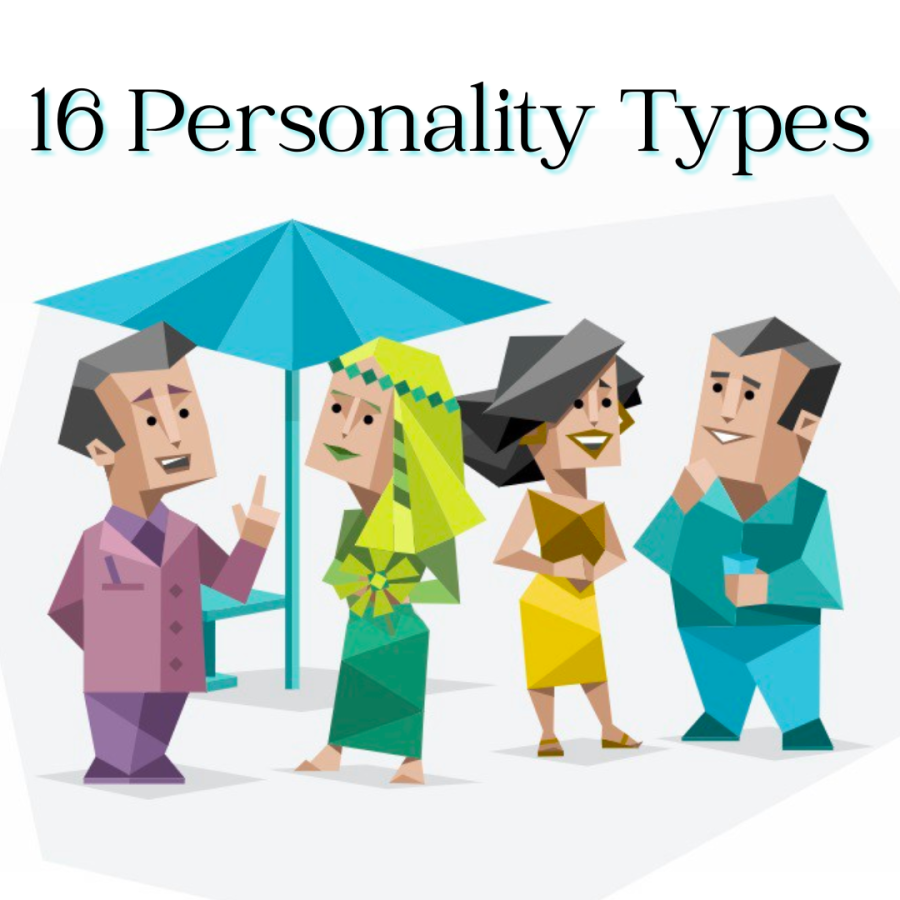Personality Tests
October 5, 2022
Although I am a Journalism major, the concept of Psychology and personality types has always been thought provoking to me. I love to come to an understanding of the personality types of those around me especially in comparison to my own. I find that certain personality tests are more relatable than others. With tests such as the 16 Personalities or Myers Briggs, or the Enneagram Test, I feel the most in connection with my type results and descriptions.
The Myers Briggs test was the first personality assessment that I took where I identified with my outcomes. I also admire this test because it gives thorough explanations about your type and the traits you generally exhibit in certain situations. Each type consists of four letters choosing between I for introverted or E for Extroverted, S for Sensing or N for Intuition, T for thinking or F for feeling and J for judging or P for perceiving. For example, my results are INTJ. After getting the four letters you are then given the title of your specific type as well as the group you fall in too. Each group consists of the various types that exhibit traits like one another. As an INTJ, my title is “The Architect” and my group is “The Analysts”. There are three other personality types that fall under the group of Analysts. The other groups are “the Diplomats, the Sentinels and the Explorers.” Each group has a general synopsis of their typical behaviors. For instance, the official 16 Personalities website provides a description of the Analysts.
“These personality types embrace rationality and impartiality, excelling in intellectual debates and scientific or technological fields. They are fiercely independent, open-minded, strong-willed and imaginative, approaching many things from a utilitarian perspective and being far more interested in what works than what satisfies everybody. These traits make Analysts excellent strategic thinkers, but also cause difficulties when it comes to social or romantic pursuits.”
For me these results could not be more spot on and reading them helped me come to certain understandings of myself. It made me feel self-aware in a way that I did not before. The website also allows participants of their test to develop a profile for themselves that offers insight into a large variety of possibilities. Some of these include strengths and weaknesses, romantic relationships, parenthood, friendships and working performance.
As an INTJ my strengths are listed as being “rational, informed, independent, determined, curious and original”. My weaknesses are being “arrogant, dismissive of emotions, overly critical, combative and socially clueless”. In relationships I am said to approach romance as a challenge and in friendships I am very selective with who I open to. These traits are alike to those of my other favorite personality test, the Enneagram. The Enneagram test is divided into nine different results, each number representing those who fall under certain traits. An example would be that I am a type five, which is The Investigator. According to the Truity website, type fives are known to display these overall behaviors.
“Fives seek understanding and knowledge and are more comfortable with data than other people. The biggest fear of the Type Five is being overwhelmed by their own needs or the needs of other people. Fives enjoy deepening their understanding of the world, expanding their intellect, while minimizing their physical and relationship needs.”The key personality qualities of a type five are: “appearing lost in thought or absentminded, being extremely difficult-to-crack, having in-depth knowledge on specific subjects of interest, giving insightful, well-thought-out responses, thinking extensively before speaking, having clear boundaries between family, friends and work, being withdrawn and extremely independent. These are all scarily relatable to me and coincide nicely with the results of my MBTI. I find it so fascinating that an exam can identify so much about me and reveal things about myself I had not noticed before. In a way it is also comforting to know that there are others out there like me who potentially struggle with some of the same things. It is also intriguing that the Myers Briggs and Enneagram results seem relatable to one another in many ways. In The Personality Junkie website article “Myers Briggs / MBTI & Enneagram Correlations” writer Dr. A.J. Drenth offers specifications of which Myers Briggs traits correlate with respective Enneagram types. Dr. Drenth says that Enneagram 1 correlates with Judging types, Enneagram 2 with Feeling, Enneagram 3 with Thinking, Enneagram 4 with INFP and INFJ types, Enneagram 5 with INTJ and INTP types, Enneagram 6 with Sensing, Enneagram 7 with Perceiving, Enneagram 8 with ENTJ and ESTJ and Enneagram 9 with INFP and ISFP types. The idea that each person is unique and yet also generally falls into specific categories of personality types is captivating. In my opinion, being able to discover aspects of myself that come from a psychological perspective is comforting in a way. Knowing that my struggles are relatable to the other people in the world that are like me helps alleviate insecurity. It also helps me understand the best ways to carry myself around other people. When I know the types of my friends or those that I encounter I can then understand in some way their perspectives and reasonings.







